|
Money is life force energy. It's an exchange of energy between you and your clients or customers. How we use our life force energy matters. Who we share our life force energy with also matters. Your offerings, and the money you receive for them, are a way to be nourished, supported, fulfilled, safe, overflowing. When we don't price our offerings properly, we can end up malnourished. This malnourishment can show up as burnout, resentment, fatigue, numbing, disappointment, anger, grief, or simply not getting your needs met fully. Money as life force means that we need to honor our money like we do our life force energy, our body and its wisdom. I love money because it's a reflector, a mirror. Your money will always show you exactly how you feel, and the shadow emotions you may not be looking at. Pause for a moment and think about your offerings. Your goods, services, products, offerings, creations. How does it feel to share your gifts and wisdom with others? Do you feel like you are being compensated fully? Do you feel ease and joy receiving money for your offerings? Do you feel full and overflowing? If not, some adjustments need to be made so that your life force is being honored and supported. Often the biggest AHA I hear from clients comes when we adjust the structure of their offering to honor their body and its needs AND find pricing that both feels good to them and their body. I see far too many women who are unclear on their financial needs, and who undercut their own receiving. This is a very old patriarchal, misogynistic, and colonialistic mindset that keeps women in lack generation after generation. You do not need martyr yourself, over give, starve, or be depleted when sharing your dharmic gifts and wisdom. Your dharma and the money you receive from sharing your gifts, is a source of nourishment, support, creativity, safety, ease. Honoring the wisdom of your body is a powerful way to adjust your pricing and your nourishment. There is no one size fits all approach to pricing. I often hear business models and business approaches that do not take into consideration the body, its needs, the embodied wisdom you are expressing, nor the legacy you provide. Everyone's needs are different and we should approach pricing in the same way. Making more money does not make you a better person, or more enlightened. Pricing is an individual process that can support your growth, transformation and healing- if used properly. Remember that your pricing should support your overall wholeness and nourishment. Here are four considerations when pricing your offerings: - Your Value The gifts, wisdom and tools you share with the world have required immense time, energy, and willingness on your part. Likely it's taken years for you to have this level of embodied awareness. You've been through so many obstacles, transformations, and overcome so many challenges on your path. The education you've cultivated in your life has come mostly from lived experience. This is part of the value you offer and provide to others. Also consider how much of your embodied value- your inner knowing and inner wisdom- comes from your ancestors. Without the gifts that they have passed down to you epigenetically, you would have no dharma, no purpose, no unique offering. The ancestors are a vital part of your Value and must be acknowledged as part of the vast awareness you bring to this world. Your pricing should honor the value of your gifts, wisdom, ancestors, and all the learning you've gathered thus far in your life. Does your current pricing honor your full embodied value? How have your ancestors influenced your gifts, wisdom, and offerings? - Your Energy Your energy is your life force. It's your body wisdom and all the power and strength of who you are in this body and life. Your pricing should honor the energy you use with your offerings, as well as the energy required to take care of your body, wisdom and gifts. Your self care and spiritual practices are part of how you maintain your energy and gifts. When you are depleted and burned out, you will have nothing to offer, and no energy to share or connect in meaningful ways. Your pricing should reflect the time and energy you spend offering your gifts, as well as the time and energy it takes to maintain your body, emotions, mind, and spirit. In other words, your pricing should allow you to attend to your wholeness. Dharma is your wholeness, which means you can not offer from an empty cup and still be nourished. Receiving money for your offerings and gifts is part of your nourishment and supports your wholeness. Does your current pricing honor your whole body and all its needs? Are you receiving what you need in order to take care of your body, mind, emotions and spirit? - Your Needs Yes, your needs are part of your pricing strategy. Honoring what you need to live a comfortable, safe, healthy, and nourishing life is why you make money. Taking into consideration what you need- on all levels of your life- is part of how we create our pricing and dharmic offerings. Your needs must be part of the equation. Everyone has very different needs and so there can't be only one way to price your offerings. Every woman must know her numbers though. Being able to tangibly clarify what your financial needs are is vital for your pricing. Clarify your monthly expenses and what you need for savings, paying off debts, getting all your basic needs met, getting taxes paid on time. Based on this number, figure out your annual financial goal. Your monthly and annual goals can be used to figure out how many clients, products, packages, etc you need in order to get your needs met. Most of the women I meet don't know how much money they actually need to make for their needs to be met. Their current pricing doesn't fully support the needs they actually have and they find themselves in lack and ongoing malnourishment. You must know how much you need before we can even address your pricing strategy and growth strategies. Do you know how much money you actually need to make? Does your current pricing honor all of your needs- including your energy and your body? Do you find yourself underpricing so you can sell more or giving your gifts away for free? Are you afraid to ask for what you really need? - Your Legacy Legacy takes into consideration past, present and future. Much of your legacy comes from your ancestors. The majority of the embodied gifts you carry with you are given to you by the ancestors. This is part of who you are and what you offer the world. You've also gathered an immense amount of knowledge and wisdom on your path so far. This is part of your offering as well. The gifts, wisdom, tools, and knowledge you provide will support a ripple effect on this planet. Think about all the lives you will touch by offering your medicine. Every life you touch will touch countless other lives as well. You are planting seeds that may come into fruition many years to come. You are supporting souls in their growth and transformation process and that will impact their families, children, partners, friends, community and beyond. You are increasing the quality of life for your clients and offering resources that will prevent more struggle, suffering, and pain. How much is this worth- to you, your clients, the world? For the most part, the positive shifts we support our clients with are truly priceless. Considering your legacy impact in your pricing equation, however, must be honored. Does your current pricing truly honor your legacy and the lasting impact you provide? What is the legacy you want to provide for your clients and the world?
Wondering how Dharmic Mentorship can help you become more nourished, embodied, and whole? >> Book a *free* dharma mentorship session <<
0 Comments
A Self Care Survival Guide for Sensitive People in Work Environments: My struggles with sensitivity have effected my ability to work. How I work, who I work with, and what I can do for work. It has felt limiting to say the least. I've had to learn- step by step- how to work with my sensitivity, not against it. How to nurture it, value it, and ultimately treasure it- even when it's a challenge and feels like it's holding me back. I'm different, I work differently, and as a result, my work is different than the rest of the world. I now understand this is something to celebrate! If you've been following my recent posts about being highly sensitive, you know that I'm passionate about offering you resources for taking care of yourself, working with your sensitivity, not against it, and realizing the gift that is your sensitivity. I believe that your sensitivity will lead you to your gifts, your dharmic purpose- but I'll be sharing more about that in the coming days. You already know that you have to treat yourself differently than the majority of the population. You have to eat differently, rest more, take care of your body more consciously. You probably already know that you need more alone time and that you may get frazzled more easily than others. These are very important considerations to be aware of for your daily life, but also for your work situations. My Survival Guide is below- a short list for self care in work environments, essentially. Here's how to thrive at work when you're extra sensitive: 1. Healthy Boundaries: If you're familiar with my work at all, you know that I speak about healthy boundaries rigorously. Healthy boundaries are different for everyone. But for sensitive types, boundaries are even more vital for well being. Boundaries keep in what nourishes, and keep out what is harmful and draining. Boundaries are a constant dance; I consider boundary work an ongoing process. But as we become more aware of our personal needs, what nourishes and what does not, boundaries become clearer and more accessible. The first step for healthy boundaries is the 3 Level Check In. It's an ideal tool for helping you clearly identify what is happening within your body, mind and emotions. You can't know what you need until you have a relationship with the felt senses. 2. Trust your differences: You are one of the "gifted and talented" as I call us. A select group of individuals who has high sensitivity, who require extra TLC, yet we are likely gifted with immense depth, awareness and experiences that might as well be an honorary title. Just because our culture doesn't honor sensitivity as a trait worth having, or a trait that is valued in our fast paced aggressive culture, doesn't mean that you aren't a valuable asset to your world, to your team, to your company or business. Play up your differences and start to honor them as the brilliance that makes you special. 3. Take Ample Pauses: Whether it's a fresh air break or a pause to breathe from your desk on the hour, it's vital that you step away, pause, or get up and move consistently and regularly. I suggest hourly pauses. Use the restroom, walk to a window, get some water. Get up from your chair, away from your computer, change your task. When you return, a fresh perspective, a new clarity, will be available to you. Make sure breath awareness is part of this "pause" and maybe a 3 Level Check In for extra good measure! 4. Take Alone Time: Though many sensitive types are extroverted by nature, the grande majority of us tend towards introversion- or at least we require longer bouts of alone time. Honor this and do as many projects alone as you can. If you have to do group work, see if tasks can be broken into individual projects that can be tackled away from the group. If your work requires constant socialization, take breaks as much as possible. Create a ritual in order to check in with yourself. I often go to the restroom for a moment of quiet and alone. Washing hands can be another ritual that can help you re-center. The water clears energy and if you've been touching a lot of people with your hands, a little soap and water can feel re-energizing. Make sure your schedule includes solid days where you can be quiet and inward- especially if the majority of your work requires a lot of external focus and extroversion. You need these days to recharge. Take them. 5. Do What You Love: This is especially important if you are not working in an environment or a job that fulfills you. It is essential to use all your spare time doing activities that bring you joy, recharge your batteries and inspire you. Get creative at home or perhaps take a new workshop. Walk in the woods, write poetry, dance, draw, journal, play with your animal companions, cook nourishing foods, do yoga. Whatever it is, fill your non-work moments with these types of self care joy! You not only deserve it, you require it for your well being. Consider this to be your part time job- or full time job! Do what you love, your life depends on it! 6. Less is More: If over-stimulation is an issue for you, then you will especially want to pay attention to keeping life, activities and relationships as under-stimulating as possible. Instead of thinking that there's something wrong with your life because it's not big, exciting and always moving, consider your needs for comfort, safety and security as your number one priority. Less can be more for highly sensitive types. We tend to need much less stimulation for our well being and need to keep our lives simple, as well as our relationships, in order to increase a sense of security and nourishment. Are you piling your plate too high and forcing yourself to comply? Only do the essentials in each day, then let self care be your number one priority. 7. Quality Not Quantity: Humans are communal creatures. And even though as a sensitive type, we tend to need more alone time, we still need quality connection to be healthy and well rounded. The type and quantity of connection we need will vary from person to person, but I suggest adding quality and meaningful connection to your self care regimen. Stay out of frivolity in your relationships- both personal and professional. Gossip and talking about people will not be fulfilling, it will be a drain of energy in the long run. Find people that you can talk about ideas and dreams with. If they can converse on those levels, they're likely worth keeping around. If the group dynamics at work seem to always fall into petty surface chit chat, be the one who provokes more intelligent conversation. Speak about books, movies, culture, activities and projects you are working on etc. Be the uplifter and keep it positive. 8. Do the Obvious: Make sure you are eating well and eat your meals at regular times. Breakfast, lunch and dinner. Lunch should be your main meal of the day, so make it count and have it be relaxed. Keep a good schedule- one that is more in tune with Nature. Get plenty of sleep- 8 hours is ideal, but some sensitive types actually need more. Exercise daily. Move your body, move your breath, every day! Life will improve with this one tip alone! Have you had a massage lately? An acupuncture tune up? Seen your chiropractor? Consulted with an Ayurvedic doctor? Call in support when you need some extra TLC. 9. Don't Take It On: This is another boundary reminder. Don't take on what is not yours. Don't be a therapist, coach, parent, healer or self help guru for anyone and everyone. Don't try to fix others or be the savior. Don't even think about fixing others. It's not your job (unless it is your job, and then it's only your job during certain hours of the day. And healthy boundaries will be extra important for you!) Let go of any attachments you have to "make others feel better". They are right where they are, just like you are right where you are. Your sensitivity doesn't need to be 24/7 empathy. Learn to create healthy energetic boundaries and tend to you own needs. This is ultimately the most compassionate use of your energy. 10. Contain Yourself: Since sensitive types tend to feel more, we tend to have more to feel, and deeper experiences as a result. This can mean that we are more expressive, or less expressive (we bottle it up inside). There's a risk of sharing too much, too little, or sharing our feelings inappropriately. (Displaced aggression? Crying for "no reason"? Withdrawing or self isolating?) This is why we as sensitive types must be working directly with our 3 Levels of Awareness, to navigate what we are feeling and what our needs are. When we can identify our needs, we have a better chance of doing something that will be helpful for ourselves. We also don't get to take out our sensitivity on others and we need to be able to self care when we are having an extra rough day- which may be more often than others. Make sure you are attending to the previous suggestions especially on these days. And don't forget to communicate with others that you are having is a particularly challenging day. They will likely appreciate the communication more than withdrawal or lack of communication- even if they don't fully understand the reason. Be sure you have ongoing support for yourself. I suggest a trustworthy therapist, counselor or coach for helping you work through your emotional challenges, getting your needs met in healthy ways and finding new resources for yourself. This relationship can often be the missing level of support in our lives and can take the burden off our other relationships. Helpful Resources for Sensitivity Are you sensitive? Here's how to tell. Needing extra tips about being a sensitive person? Find mine here. And use this creative ritual for some extra reminders. For those of us who are sensitive, a 3 level check in can help us immensely. Find out more about this simple awareness trick. Struggling to read your own chart? Need some basics? Use my Jyotish Basics MP3 for guidance. Please share these resources with your sensitive friends! I help sensitive women become the leaders of their lives.
I am on a mission to help sensitive souls (like you) clarify your inner truth and inner wisdom. To connect with your powerful purpose and innate leadership skills. We need you now more than ever! Every week I offer two free Dharma Coaching sessions to sensitive, gifted women who are ready for life change. Is this you? Email me to see if I have any openings: swatijrjyotish@gmail.com Perhaps the easiest- yet the most challenging- Self Care resource available, is the ambiguous, Drop It. That's my way of saying, do you know when to let go? More importantly, do you know how to listen to your body's messages in order to hear when it needs you to stop, slow down or change your course of action? The body is always giving us vital messages, yet the majority of the time we are not listening to them. Can you hear your body talking to you? As I consistently share with my clients, the four level check-in is really step number one. Make this your practice daily and get in a habit of taking the time and creating the space, to hear your body's messages. When do you slow down or stop? Do you wait until you are sick and you are forced to be in bed for two or more days? Do you wait until you are dragging and have no choice but to stop? Do you let the mental body ramp up to anxiety level before you notice the red flags? Or perhaps you wait until full blown depression has settled in before you start to listen? These are messages that one of the four levels of your being is yelling at you! Here are some clues that you have pushed passed your vital messaging systems: Physical Body: Aches and pains, fatigue or exhaustion, broken bones or limbs, nausea or vomiting, cravings, serious health diseases or disorders. Emotional Body: Depression, malaise, anger and rage, anxiety, frozen or numbness, intense or amplified emotion of any kind. Mental Body: Anxiety, worry, fear, over-active mind, heightened critic, any intense or amplified thoughts, stories or images. Spiritual: Disconnect, inability to resource or find a connection to spirit. Often we wait until we are having a huge physical, mental, emotional or spiritual challenge- or even crisis- before we really start to listen. But it doesn't have to be this way! If often tell my clients- it's not a problem until it's a problem! Usually the problem is what forces us to change. However, what if we noticed the "problems" in the moment when they arrive? What if we were so good at tracking our internal responses that we could shift, re-direct or drop it right then and there?! I believe that's possible with awareness and is the key to prevention. With daily and weekly self tracking and the internal harvesting of our needs, we can begin to make adjustments in our actions and choices. This is Self Care in action! Art, embodiment and somatic resources can help us do an internal audit- in very concrete and tangible ways. These resources help us deepen our listening skills and our ability to hear what the body's messages are. Use this five step process to help you identify what your needs are: Step #1 Do a Four level check-in. Track the messages within on each level. Write them down in your journal if that helps you remember them. Step #2 Identify the loudest body. Is it your mental, emotional, physical or spiritual body? Which one has the loudest voice or is the most amplified? (You might also want to notice which one has the softest voice as well). Step #3 Let yourself enter a dialogue with the loudest body. (You can also do this with the quietest body as well). Go a bit deeper and see if you can track any more information. What does it have to share with you? Then ask this body to answer these questions: I am I want I need Step #4 Pay special attention to what this body says it needs. The need is often connected to getting more nourishment or greater support on some level. How might you be able to meet the needs of this part of your body? What has to be shifted, changed or even dropped in order to give this part of your body what it needs? Are you resistant to doing so or are you open to asking for support and solutions? Step #5 Take the necessary action steps to get what you need. Often this requires change on some level of our life. Are we willing to make the necessary changes? Remember, this is truly a radical self care process. It's like a muscle that strengthens with flexing. The more you do it, the easier it gets. Listen deeply to what your inner bodies are telling you. Resource from within. Then make adjustments or changes where necessary. Can you let go- in order to find deeper nourishment? What do you need to drop in order to lighten your load? Use this alternative tracking process for deeper listening and healing + a podcast to walk you through the process. Want extra support, guidance and resources for 2016?
Ready to make your coming year as powerful as you possibly can? Get the details about my Maha Membership. |
The Dharma Blog
Are you an experienced healer ready for a 6 figure business and clarity with your dharmic purpose?
Join the Dharma Circle FB Group Podcasts
Articles
Archives
June 2022
Categories
All
|
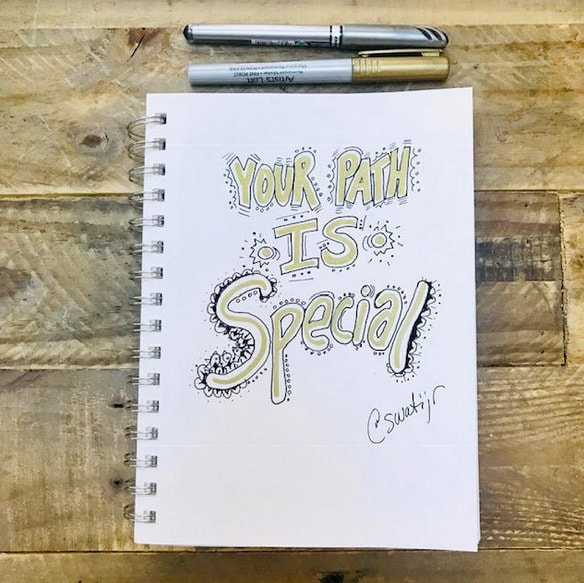

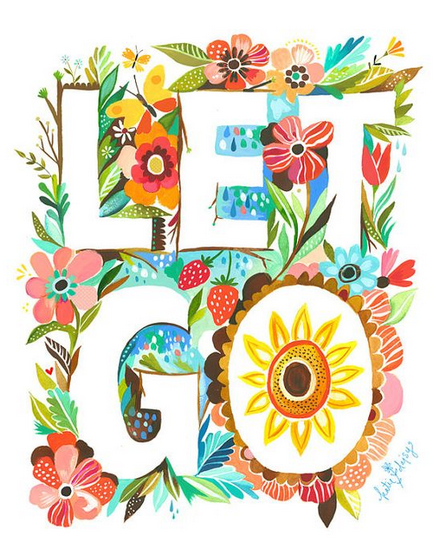



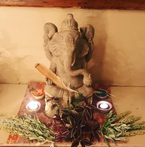




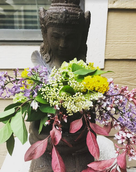
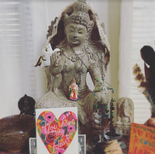
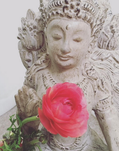








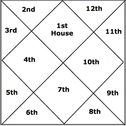
 RSS Feed
RSS Feed